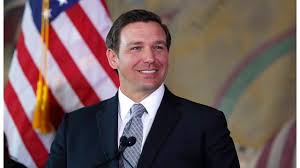There have been five Category 5 hurricanes — all of which made landfall — in the Atlantic since 2016. Five.
Before that, the Atlantic basin had gone eight years without one of these monster tropical cyclones. Eight.
The ugly truth, according to climate scientists, is that we have no reason not to expect another Dorian. Or another Harvey. Or another Michael.
A 20-page synopsis of current research about global warming and hurricanes issued in August by NOAA’s Geophysical Fluid Dynamics Laboratory (GFDL) summarizes that sea-level rise, “which very likely has a substantial human contribution”; will cause higher coastal inundation levels for tropical storms.
This means bigger waves and higher storm surge that reaches farther inland.
It also means that Florida — which, to quote one local emergency manager, “dodged a nuclear bomb” in the form of Hurricane Dorian — faces a heightened threat from such catastrophic storms in coming years.
So, as much as we appreciate the new talk of “resiliency” against the effects of climate change from our new governor, Florida needs to move beyond playing catch-up and get ahead of this.
We need to be brave and bold not only in our thinking, but in our actions: To truly encourage alternate energy use and create tax incentives to reduce greenhouse gas emissions.
A year ago, the Palm Beach Post Editorial Board reminded that on the campaign trail, Gov. Ron DeSantis said he saw no role for a state to play in combating climate change. He was dead wrong.

Florida has a leadership role to play. Climate and storm experts warn that the conduct of recent Category 4 and 5 hurricanes — flooding rains, escalating intensities and a swollen storm surge riding on rising seas — is consistent with what climate change models predict will happen more often as the world warms.
“It’s kind of like your chickens coming home to roost. Dorian is all those things we predict: a rapid intensifier, it was a strong storm that maintained its strength for a long time, and it stalled,” Jim Kossin, a climate scientist with the National Oceanic and Atmospheric Administration (NOAA), told the Post’s Kimberly Miller. “It’s a poster child for how bad things can get.”
This week, as the United Nations focuses the world’s attention on the climate change threat, it would have been heartening to see DeSantis and other Florida leaders step to the fore. Why? Because our beautiful state, with 1,200 miles of exposed coastline, is arguably more at risk than any other — literally millions of residents and billions of dollars in development from Fort Walton Beach to Fort Lauderdale.
Yes, we need sea walls and raised roads to help stave off (at least, temporarily) the effects of a slowly encroaching sea. But neither would have protected our county’s coastal areas from Hurricane Dorian’s 20-foot storm surge and 3 to 4 feet of rain.
As the UN Intergovernmental Panel on Climate Change (IPCC) released an update Wednesday to last October’s influential report on the climate crisis, we already know the core truth: we are running out of time to curb man-made impacts on climate.
According to the GFDL report, titled “Global Warming and Hurricanes, An Overview of Current Research Results,” the global proportion of tropical cyclones that reach very intense Category 4 and 5 levels is likely to increase because of human-caused warming over the 21st century.
Again, here is where bold, brave Florida leadership could show its citizens — and other states — how to begin combating these long-term impacts. Begin by replacing the state government’s own fleet of gas-powered vehicles with electric. Place rooftop solar on every state-owned building. And, as Hurricane Michael painfully reminded us, begin to explore limiting coastal development.
We invite your own ideas.
On Monday, the 16-year-old climate activist Greta Thunberg told world leaders at the UN Climate Action Summit in New York, starkly: “You are failing us. But the young people are starting to understand your betrayal. The eyes of all future generations are upon you. And if you choose to fail us, I say: We will never forgive you.”
A week ago, Thunberg addressed a congressional committee in Washington. “I want you to listen to the scientists,” she said. “And I want you to unite behind the science. And then I want you to take real action.”
Out of the mouths of babes.
“The Invading Sea” is a collaboration of four South Florida media organizations — the South Florida Sun Sentinel, Miami Herald, Palm Beach Post and WLRN Public Media.



